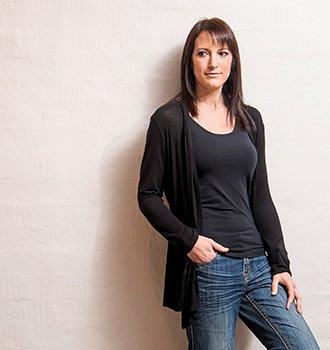Latest News Archive
Please select Category, Year, and then Month to display items
01 July 2021
|
Story Dikgapane Makhetha
|
Photo Supplied

This year, the young people of South Africa celebrated 45 years of the annual commemoration of
Youth Day. The University of the Free State (UFS)
Community Engagement (CE) office on the
Qwaqwa Campus has engaged a number of stakeholders in the call to use football as a means of bringing people together, transforming lives, and enthusing communities. Through partnerships, community organisations have great potential to create opportunities for breaking down barriers and inspiring social cohesion, initiating enablement through the development of social projects, and promoting education and health awareness.
On 16 June this year, local community organisations collaborated in the hosting of a soccer event for the youth of Qwaqwa at the FIFA Football for Hope Stadium in Tsheseng.
The Agape Foundation for Community Development,
Love Life,
Right to Care,
Youth in Action, Qwaqwa FIFA Project, and the Tsheseng Athletics Club were all stakeholders who diligently joined forces to ensure the successful launch of the tournament. Community development practitioners, who are trainees in the UFS Qwaqwa Department of Community Development, were garbed in departmental branded gear and have cautiously facilitated adherence to COVID-19 protocols. About 250 people, including football fans and participants, attended and enjoyed the entertaining games. Through the partnered recreational project, the Qwaqwa Campus CE office responded to the 2021 Youth Day theme: ‘Growing Youth Employment for an inclusive and transformed society’, by enhancing opportunities for networking among stakeholders. Football is popularly known for promoting transformational social projects in diverse communities across the globe.
#Women'sMonth: Lack of HIV education still affects children
2017-08-17

Dr Nickie Goedhals, Senior Lecturer and Pathologist
in Medical Microbiology and Virology at the UFS.
Photo: Sonia Small
“Despite all the advances in the management and prevention of HIV, children still become infected every day, often due to lack of education and access to health care.” This is according to Dr Nickie Goedhals, Senior Lecturer and Pathologist in Medical Microbiology and Virology at the University of the Free State (UFS).
Study published in UK medical Journal
A case study she was part of and published in the UK medical journal The Lancet in 2012, demonstrates the transmission of HIV to a child through surrogate breastfeeding. This study is one of the many highlights in the young researcher’s career. She received her first rating from the National Research Foundation (NRF) in 2017 for the work she has done in Medical Virology over the past eight years.
According to the above-mentioned study, only about 1% of infants in South Africa are being breastfed by a surrogate. However, results from a study in the Free State showed that shared breastfeeding by a non-biological caregiver was the most important factor associated with HIV infection in discordant mother-child pairs. Therefore, continued education about the risk of HIV transmission is needed.
Dr Goedhals is also continuing with research on HIV by looking at HIV drug resistance. She is in the process of starting new projects focusing on HIV infection and drug resistance in infants.
PSP helped with NRF-rating
She says, although her NRF Y2-rating is the starting point of a research career, it shows that she is heading in the right direction, and it “gives access to research funds through the NRF for future projects.” Other important research she conducted was on Crimean-Congo haemorrhagic fever – the study for her PhD.
The Prestige Scholars Programme (PSP) at the UFS is the reason that she applied for the rating. “With all the service delivery, teaching, and administrative responsibilities of academic medicine, it is easy to lose focus. The PSP has really helped to create a focused and stimulating environment for research.” According to her, the PSP also provides access to a network of peers and senior staff at the UFS, as well as exposure to national and international experts.